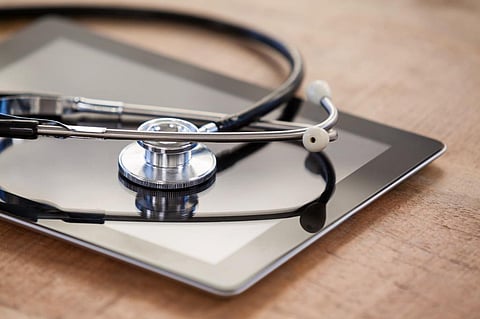Technology is driving smarter access to healthcare in Africa
EVERY YEAR in Africa, out-of-pocket health expenditures push millions into poverty. Today, an estimated 60 per cent of healthcare is paid for out-of-pocket, with only a small number of Africans covered by health insurance.
Nigeria, for instance, has a population of 197.4 million—the largest in Africa. But over 60 per cent Nigerians are from lower socioeconomic backgrounds and less than 4 per cent of the population has healthcare coverage. Since 2017, the federal government has taken major steps towards universal health coverage (UHC). Notably, the enactment of the National Health Act 2014 earmarks 1 per cent of the annual revenue for the provision of basic healthcare services to those in the lowest income groups. In 36 states, primary health centres have been upgraded and 19 of these states have either passed their mandatory health insurance law or their Bills are currently going through a legislative process.
In the context of the global push for UHC by 2030, the implementation of a digital platform for health insurance scheme’s operations is pivotal. Such a platform connects key stakeholders—the payers, patients and providers—and enables communication, data and money transfers. Together with CarePay and Safaricom Foundation, PharmAccess Foundation has developed, and is implementing such a platform in Kenya, where it is called M-TIBA. This can be accessed through a mobile phone and over 1 million people are enrolled. It’s a mobile wallet that can only be used for healthcare. Individuals use it to pay for insurance, to save money for other expenditures, or to pay for their family’s healthcare. Every time the wallet is used, medical and financial data is collected. This creates transparency and empowers people to take decisions.
Lagos , a state with a population of over 20 million, has chosen the CarePay platform to administer its mandatory health insurance scheme using a combination of mobile and digital technology to increase access and reduce administrative costs.
But it is only a part of creating a wider healthcare ecosystem. To create a sustainable demand for health insurance, improving healthcare providers’ administrative and medical capacity through bench-marking and continuous quality improvement programmes is necessary. People should have a reasonable expectation of receiving care and the quality of care. SafeCare, the brainchild of PharmAccess is a unique standards-based approach for measuring, improving and recognising the quality. To date, 2,500 clinics have been awarded a SafeCare rating. By digitising, the methodology can be implemented cost-efficiently at scale and enhance the health insurance schemes.
It has taken years of collaboration between the state, healthcare providers and communities to ensure long-term delivery of primary healthcare, including maternal and child health—a key part of Sustainable Development Goal 3. Technology empowers the individual to decide when and where to seek care. But technology itself is not an end in our mission, only a means to offer healthcare to those who were previously unreachable.
(This article was first published in the 1-15th December issue of Down To Earth under the headline 'Health for all, the digital way'. It is part of a series on healthcare in Africa. See links below).


